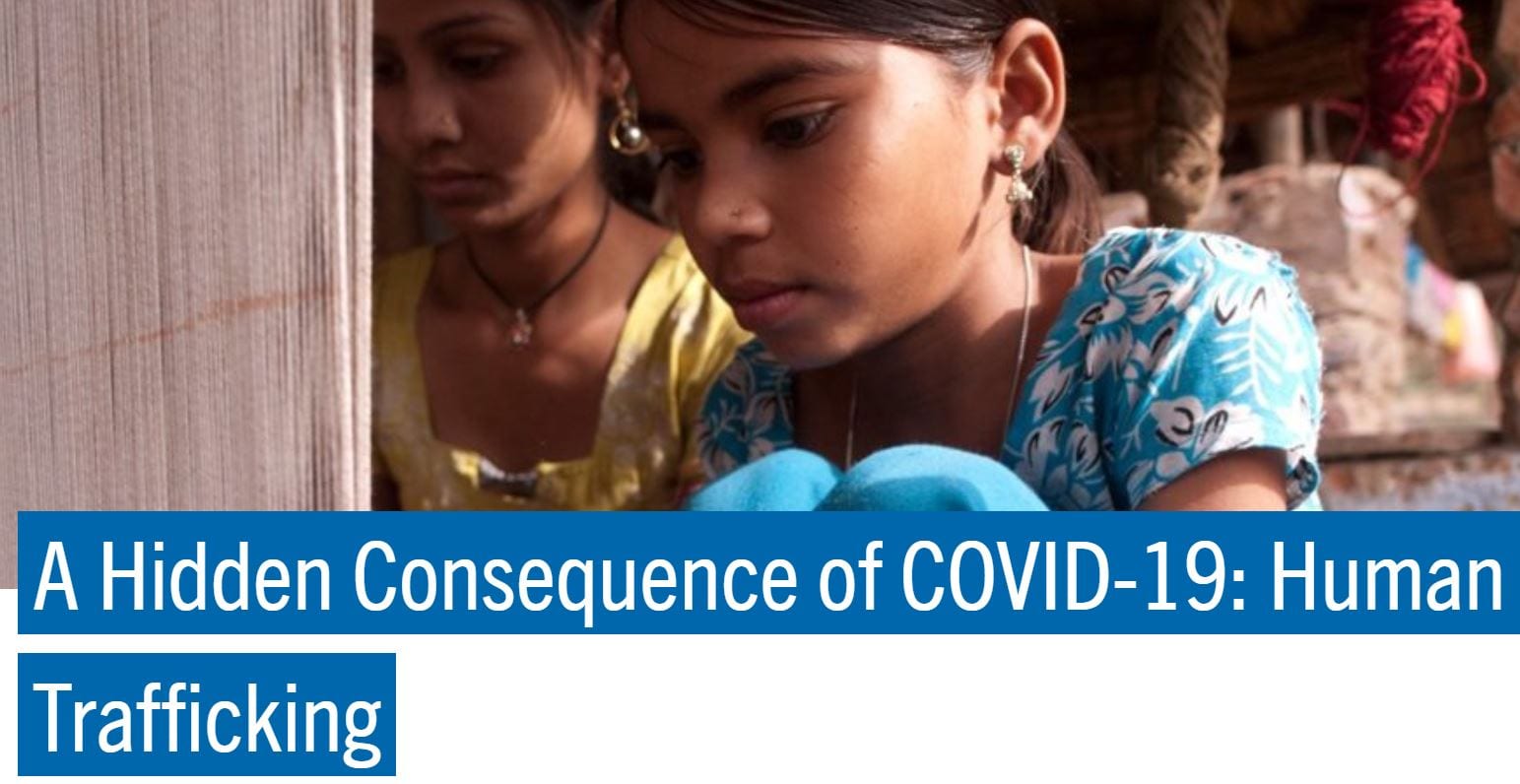
A Hidden Consequence of COVID-19: Human Trafficking
We are in the midst of a pandemic and a resulting global economic crisis that has exacerbated poverty and systemic inequality — both root causes of human trafficking. Trafficking exists for various exploitative purposes including forced labor, sexual exploitation, domestic servitude, forced marriage, and organ harvesting.
Given the nature of this crime, it is already difficult to track and connect its victims to social protection services. Now, we must factor in lockdowns, quarantine, and travel restrictions. With COVID-19 dominating the global conversation, the consequences for trafficking victims are often hidden and rarely discussed — even though the Global Economic Forum predicts the virus will worsen the situation for victims, increase those vulnerable to exploitation, and disrupt anti-trafficking efforts.
DANGEROUS SITUATIONS FOR VICTIMS
Many countries have reported increased levels of domestic violence since the outbreak of COVID-19, which is concerning for victims of human trafficking, especially those forced into domestic servitude or sex slavery — both of which disproportionately affect women. Because many victims don’t have access to quality health care, they wouldn’t get the medical help they’d need if they contracted COVID-19.
It is already difficult to detect victims of human trafficking because of their widespread inability to report their victimization, their presence in illegal and underground sectors, organized crime hiding in plain sight, and limited law enforcement capacities to recognize this crime.
Added to that, the precautions surrounding the pandemic only exacerbate these difficulties. For example, many NGOs performing prison and immigration detention monitoring have scaled back their work due to the pandemic-related measures. Due to the pandemic, many victims are being denied shelter, with some shelters closing because of infections. Additionally, isolation can disrupt victims’ access to informal support networks such as friends and family.
Read more here.
